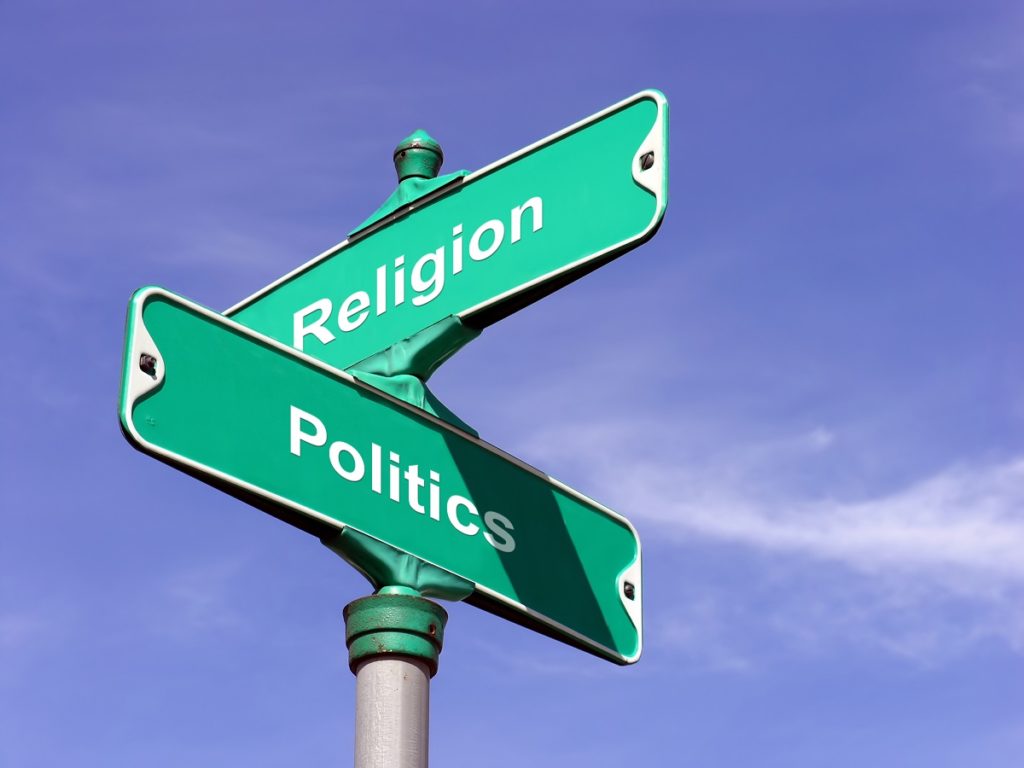The last couple of weeks has demonstrated once again that politics is a mucky business. Politicians and those who work with them are seen to be seeking personal gain and self-promotion, ignoring the rules that everyone else must follow.
Also last week, newly-analysed research from thinktank Theos found that people are increasingly suspicious of those with religious views holding high office, especially those they consider to be ‘old fashioned’ from a moral perspective.
But the values of the Christian faith are love, grace, justice and service. These are qualities that our society desperately needs in politics, but that seem increasingly absent. And most Christians engaged in politics believe that they are called to put Jesus’ love into practice, by loving and serving others with the same attitude of faithfulness, compassion and self-sacrifice that he displayed.
There is an assumption in public life that an absence of faith is the natural and neutral position. But this is nonsense. There is no ‘neutrality’ in the public square. Everyone brings their values and views to their politics. But we also live in a democracy, which means that politicians have a duty to reflect the views and priorities of their voters – not only their own. This has always been a complex process.


Another recent report, “Does Government do God?”, by the Government’s independent faith adviser, Colin Bloom, is a comprehensive review of how the public sector engages with faith in the UK today.
It recommends that that “everyone on the public payroll” – including local and national politicians, NHS and teaching staff, police and prison officers – is given faith literacy training. This is hugely welcome. From a Christian perspective, it’s clear that there is no longer even a basic knowledge of Christian values, teaching and observance that could be taken for granted 50 years ago.
Politicians, civil servants and the media will better serve a diverse and plural society if they are curious about why people of faith think as they do, and why their faith is more than cultural. This will also assist in the understanding of other faiths, and the report is particularly clear that more needs to be done to emphasise, for example, that the vast majority of Muslims do not hold to the views of Islamic fundamentalism, just as 99.9999% of Christians consider the actions and statements of Westboro Baptist Church to be appalling.
Indeed, the Bloom report warns about ‘make-believers’ who “are generally the cause of most of the problems that government encounters in the faith space. Make-believers are often motivated by ego, money, prestige or power and abuse their position to promote themselves or their causes, clothing them with religion to give them divine legitimacy”.
Jesus spoke bluntly but truthfully to those ‘make-believers’ whose religion was an outward show for their own power and pride.
But these people should not be confused with ‘true believers’, who, “regardless of their faith, are sincere, devout and peaceful.” The latter bring great value to public debate.
The Theos research and the Bloom report also both present a challenge to people of faith – and again I speak from a Christian perspective – to work on our own cultural and political literacy, which is often woefully poor. Christians also need to understand our neighbours’ beliefs and values, and why certain parts of the Bible and traditional Christian teaching seem intolerant and exclusionary in today’s society.
And if we are going to live in a genuinely pluralistic society, people of all beliefs (including atheism), must all be prepared to show the same curiosity towards others’ beliefs that we would like others to show to ours.
Finally, we must avoid harsh or hateful speech about other groups, but at the same time we absolutely must not demand that everyone conforms to a uniform belief in the values of secular progressivism.
If we block people of faith from seeking to reflect the positive Christian values that underpin western liberal democracy – justice, mercy, equality, honesty, accountability – we are in danger of losing these values whilst continuing to enable those who are primarily seeking to serve themselves.
And before we dismiss Christianity as old fashioned, and those who hold to it as being stuck in the past, just remember that Christianity has been mocked and patronised as being ‘old hat’ or worse by hundreds of different world views over the last 2,000 years. Most of those world views are now forgotten in the dust. Meanwhile Christianity endures and thrives with more believers worldwide than ever before.
Tim Farron is MP for Westmorland and Lonsdale, and former Leader of the Liberal Democrats. He is the author of A Mucky Business: Why Christians should get involved in politics

